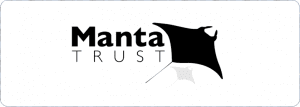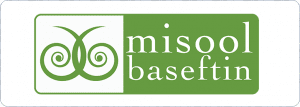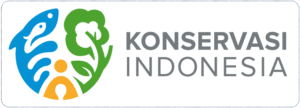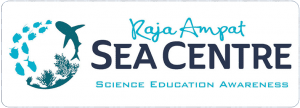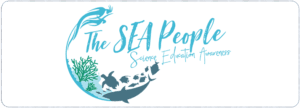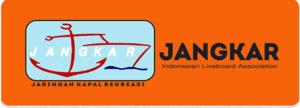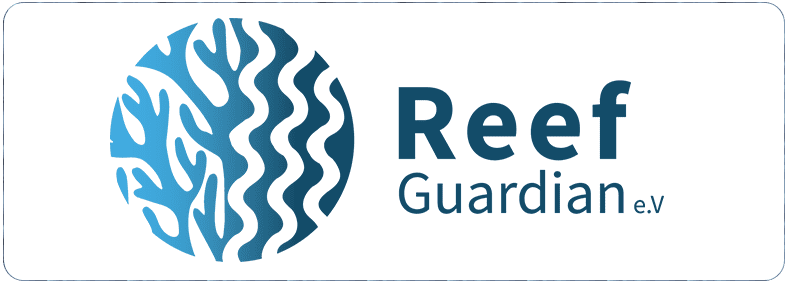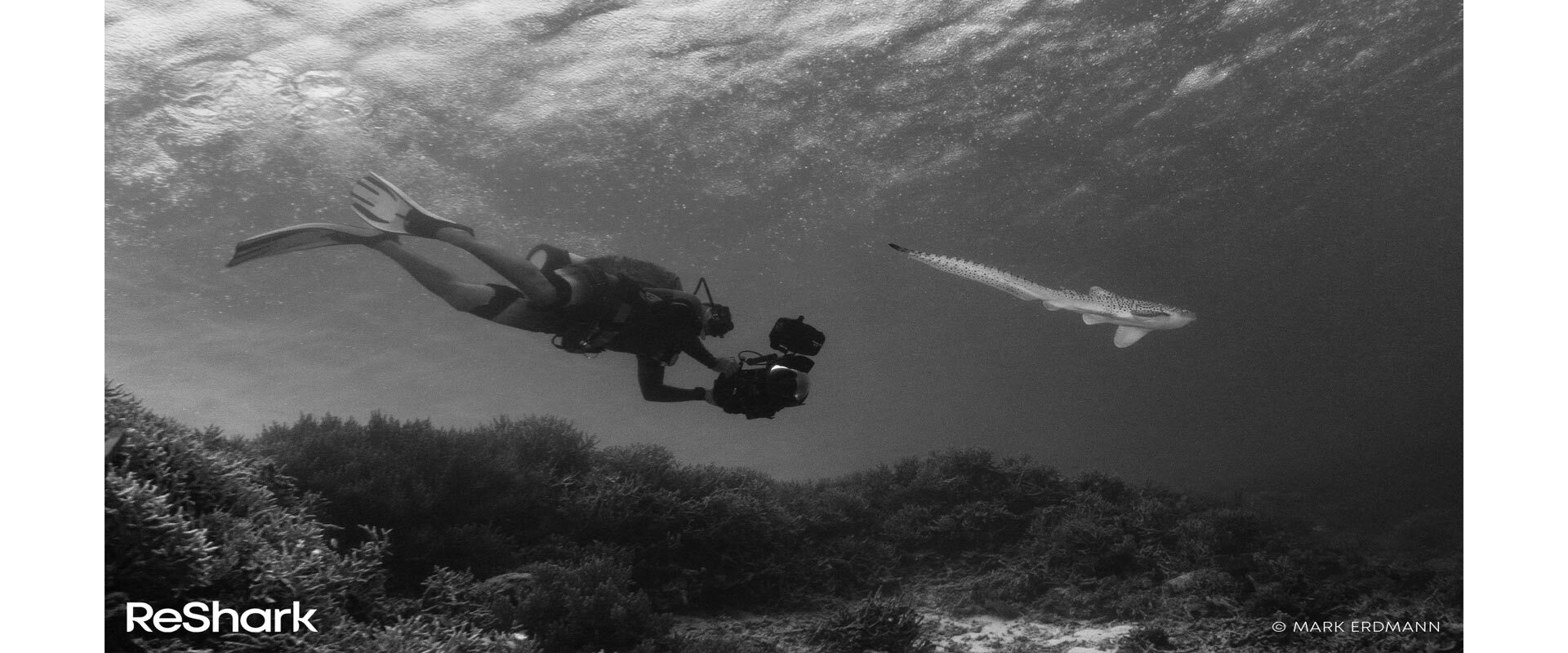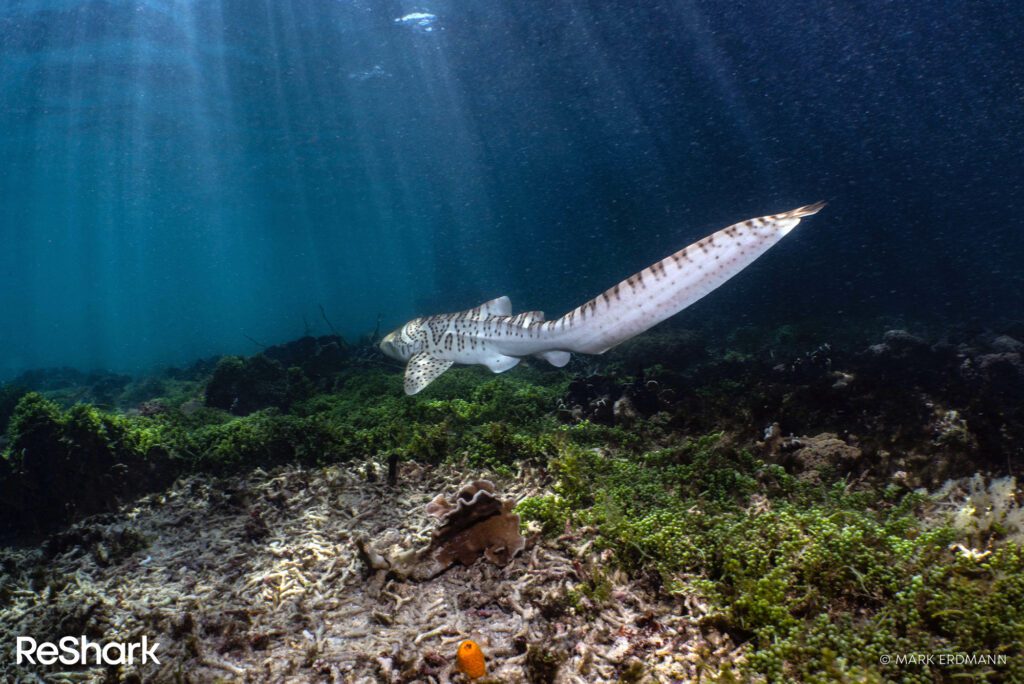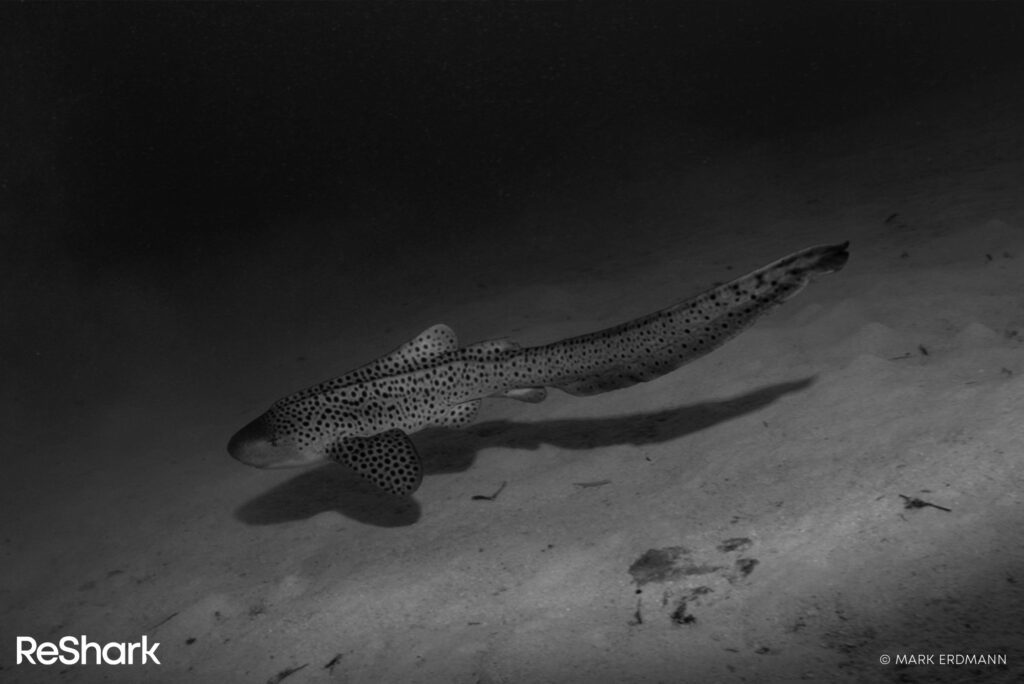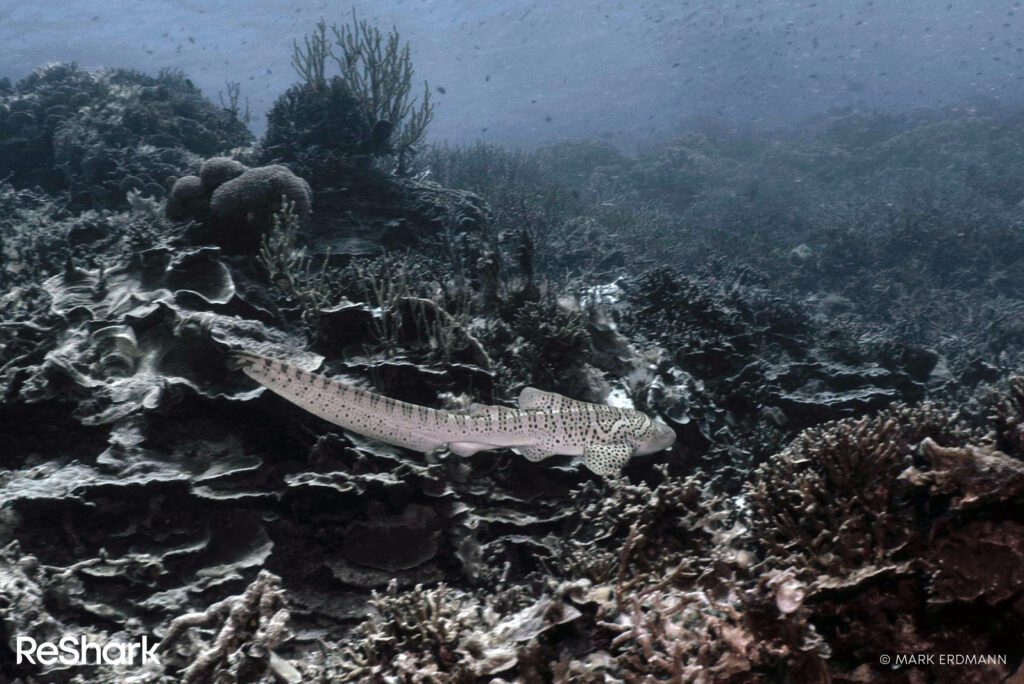StAR project successfully completes first 2024 releases of 6 leopard shark pups in Raja Ampat! by *Mark Erdmann & **Nesha Ichida
In 2023, the StAR project made global headlines in conducting the world-first conservation translocations of 5 endangered leopard shark pups – raised from eggs laid at participating partner aquariums in the US and Australia – into the azure waters of Raja Ampat. In 2024, the first project of the ReShark initiative aims to quadruple this number of releases – and then hit its long-term target of 50-100 pups released per year by 2025!
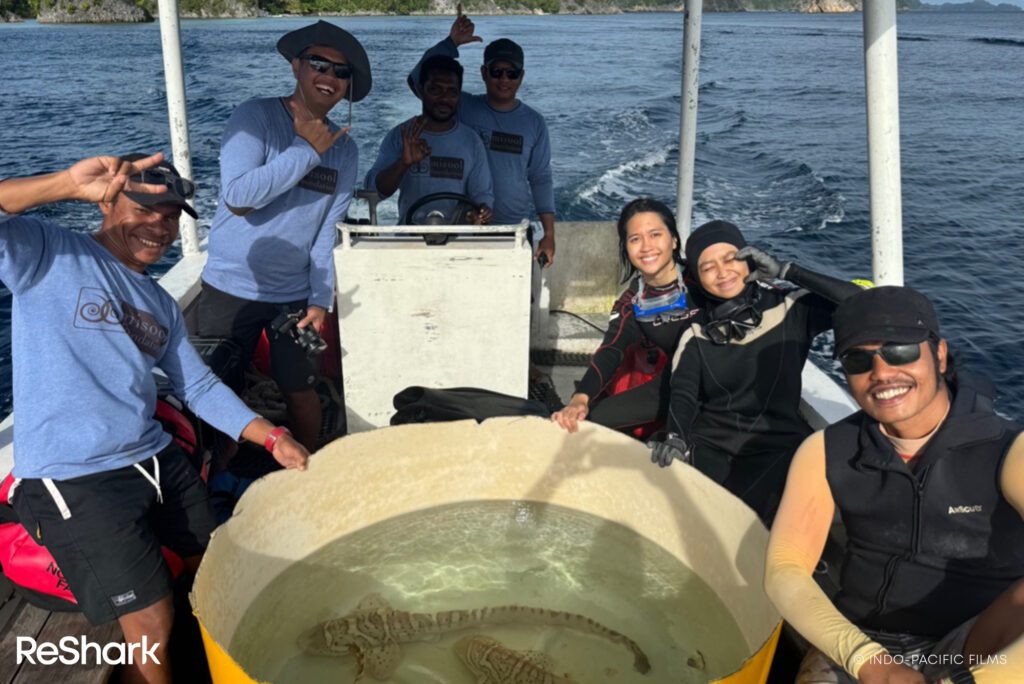
The aquarist team from Misool Foundation transport Taran, Charlotte and Dawn from the Kalig sea pen to the release site in front of Misool Resort. Photo by Luca Vaime/IPF.
We’re pleased to announce that last week the StAR team successfully released the first six pups of 2024 – three from the Misool Foundation nursery and three from the Raja Ampat Research and Conservation Centre (RARCC) nursery. The six released pups ranged in size from 1-1.2m in length and weighed up to 4Kgs – significantly larger than the 70-80cm pups we released in 2023, and hopefully large enough to deter potential predators! Most of these pups hatched in February of 2024 (though one pup, Buddy, hatched in November 2023) and had been lovingly cared for by the dedicated aquarist teams at the two hatcheries.
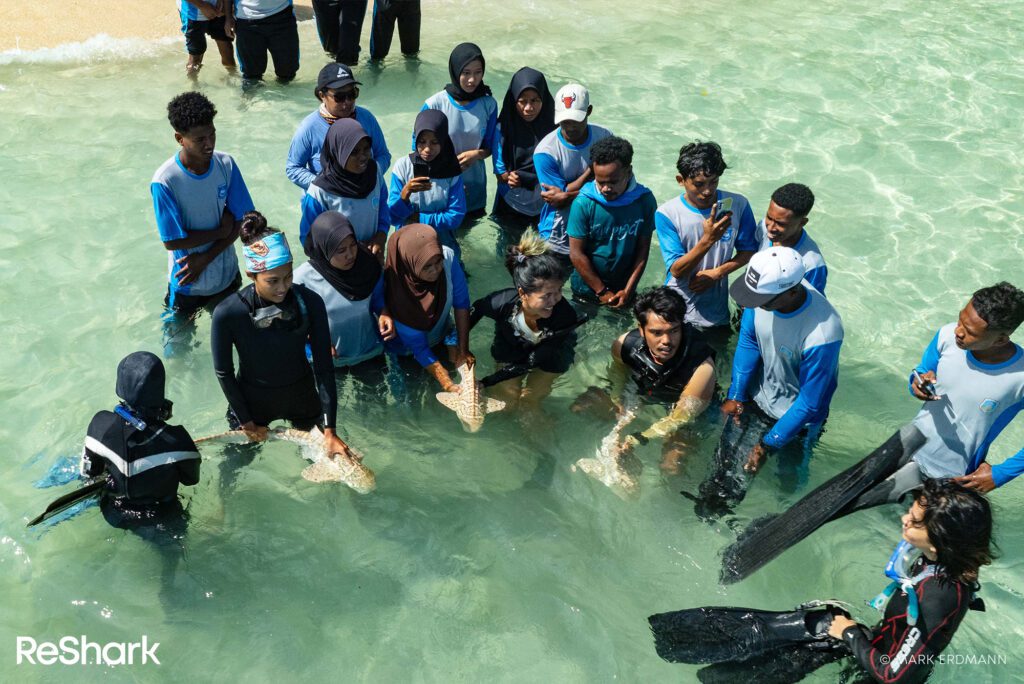
High school students from Dabatan village in SE Misool watch the aquarist team release Taran, Dawn and Charlotte in the Misool Resort lagoon. Photo by Mark Erdmann/CI.
In Misool, three pups (Charlotte, Taran and Dawn) were released simultaneously within the shallow lagoon at Misool Resort while staff of Misool Foundation and the resort and a group of visiting high school students from nearby Dabatan village excitedly watched. The three pups immediately fanned out across the lagoon.
While two of them (Dawn and Taran) spent a few hours in the lagoon before leisurely exiting, Charlotte surprised us all – actively exploring the lagoon at high speed for about 45 minutes before swimming over the reef crest and down to 20m depth, then returning to the surface and embarking on a marathon 3 kilometer surface swim from Batbitim to Kalig island over deep (>120m) water! She completed this daring surface swim in less than 30 minutes, shattering our assumption that the pups would be deterred from crossing deep water and would remain in the vicinity of Batbitim Island for the coming weeks or months.
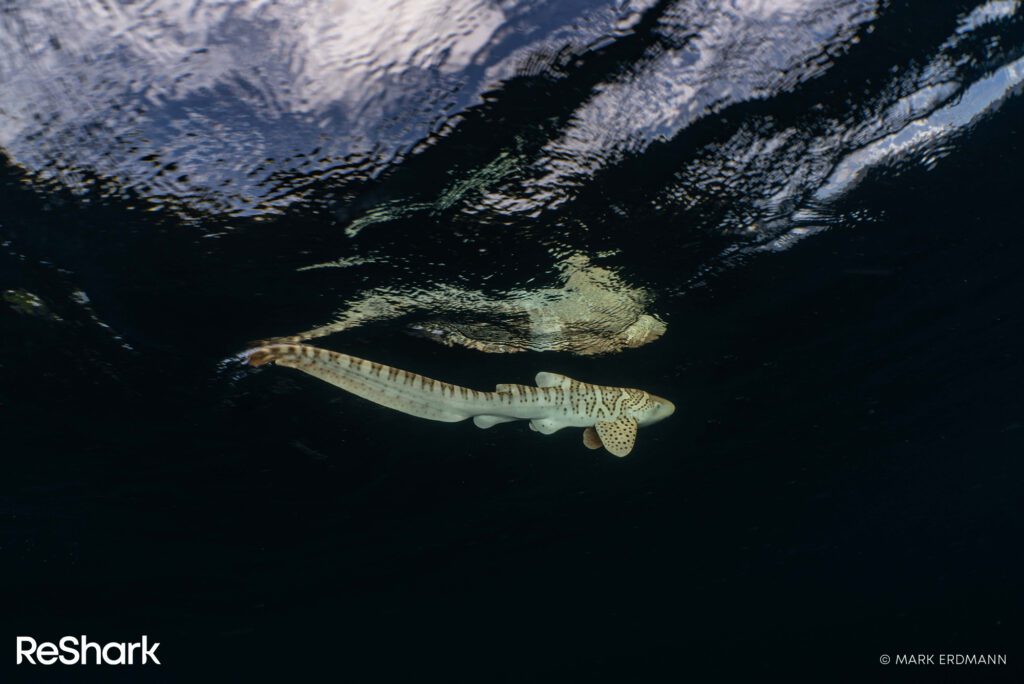
Charlotte in the midst of her epic 3km surface swim from Batbitim to Kalig island. Photo by Mark Erdmann/CI.
Fortunately, all of the pups have had 3-5 year battery life acoustic tags surgically implanted, and we have an array of 15 acoustic receivers installed across the SE Misool region – so hopefully Charlotte and her brother and sister will be regularly pinging our receivers! NOTE: If you see one of these acoustic receivers please leave it in place!
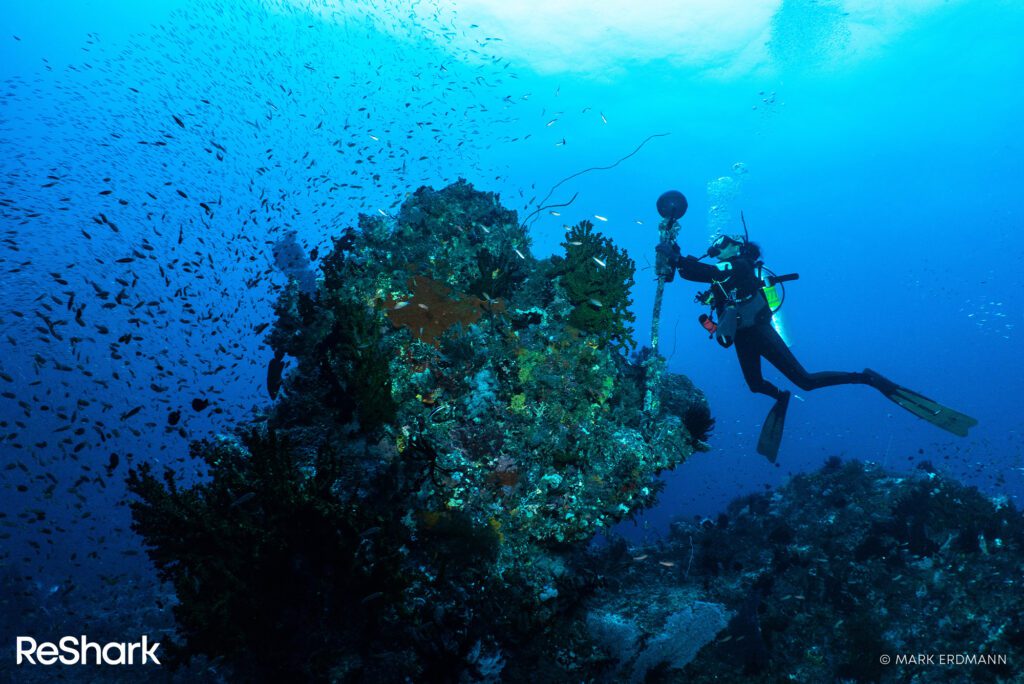
Nesha Ichida securing an acoustic receiver that will allow us to track the released pups over the coming 5 years. Photo by Mark Erdmann/CI.
From Misool, the release team travelled north to the RARCC nursery in the Dampier Strait, where three additional pups were released over a three day period. We specifically decided to release the pups one-at-a-time from the RARCC nursery in order to allow us to carefully track each animal for as long as we could.
First up was Buddy, our oldest pup, who was released to the cheers of a group of schoolchildren from Child Aid Papua who have been intimately involved in the raising of these pups by their weekly collections of a variety of snails for pup food! Buddy immediately descended into the 25m deep “blue hole” lagoon in front of Papua Diving’s Sorido Resort, and spent the next 5 hours exploring the extensive lagoon – allowing divers to approach her only momentarily before she would jet off again – eventually leaving the lagoon in the afternoon and confounding our efforts to follow her.
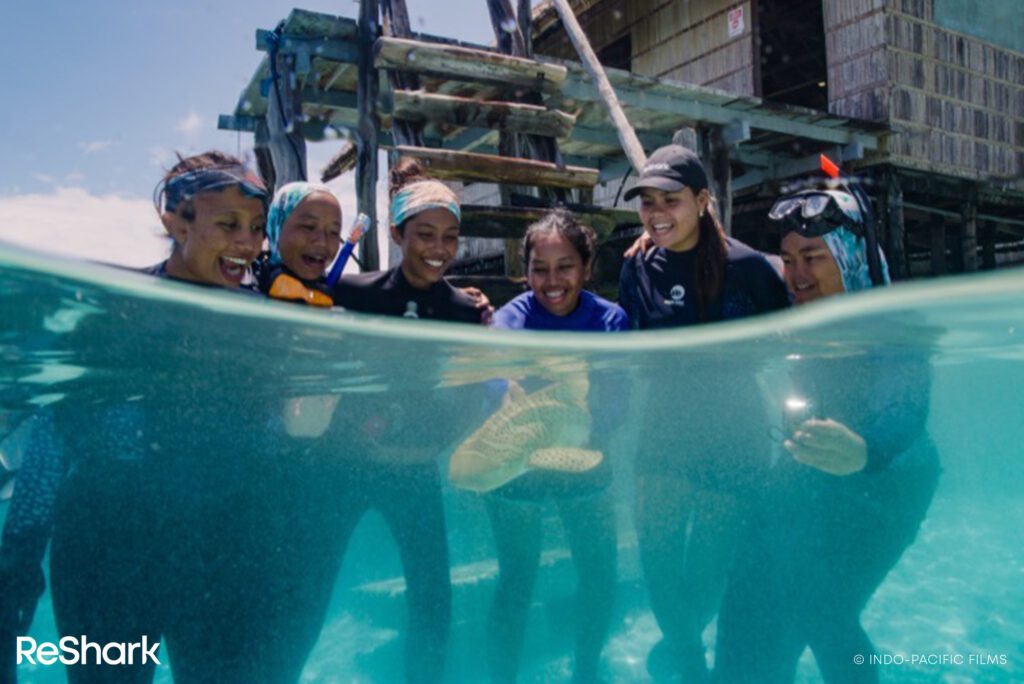
The aquarist team from RARCC are all smiles as they release Camille in front of the RARCC nursery on Kri Island. Photo by Luca Vaime/IPF.
Next up was Camille, who initially explored the shallow reefs around the sea pen she’d called home over the last 4 months – at times looking as if she wanted back into the pen to join her remaining 13 brothers and sisters. Soon though she also descended into the blue hole, and spent the next 9 hours there – only slipping away shortly after sunset.
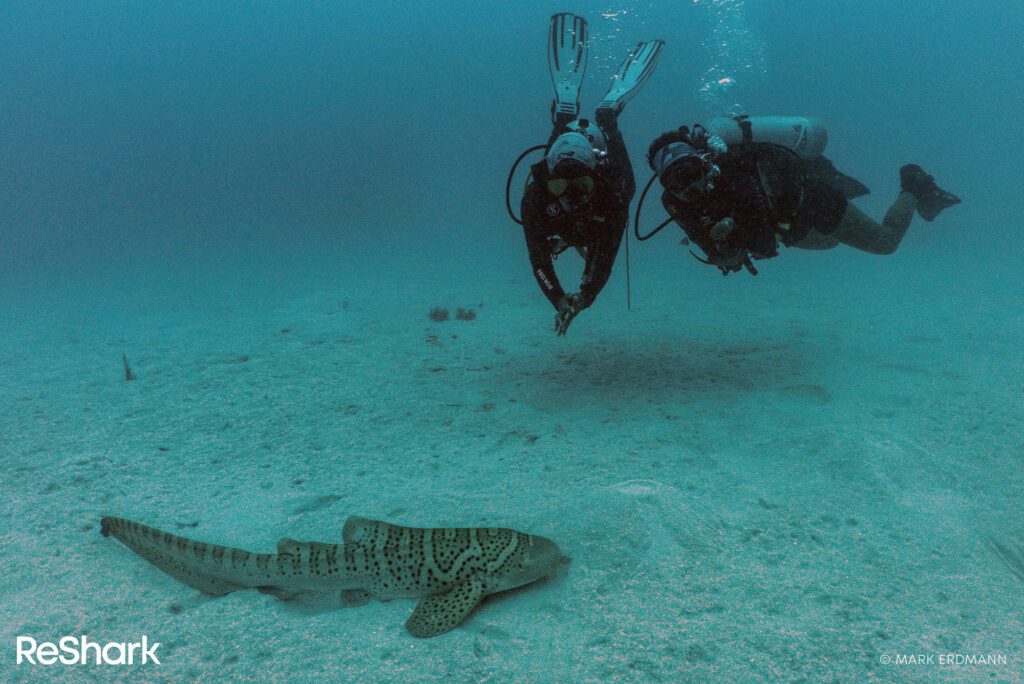
RARCC aquarists monitor Camille resting on the bottom of blue hole lagoon. Photo by Mark Erdmann/CI.
On the final release day, a group of elementary school children from Arborek village joined the festivities, having been brought to the nursery by the team from Barefoot Conservation. Today was Seren’s turn, and he wasted no time in speeding away from the hands of the aquarist releasing him as Luca Vaime from Indo Pacific Films sprinted to try to keep up. Seren swam to the bottom of the blue hole and sprinted to the end, and then settled to the bottom for a rest on the sand. He laid there for about 45 minutes, posing for pictures with the adoring aquarist team, before abruptly shooting off, up over the reef into shallow water before descending into the swirling waters of Cape Kri.
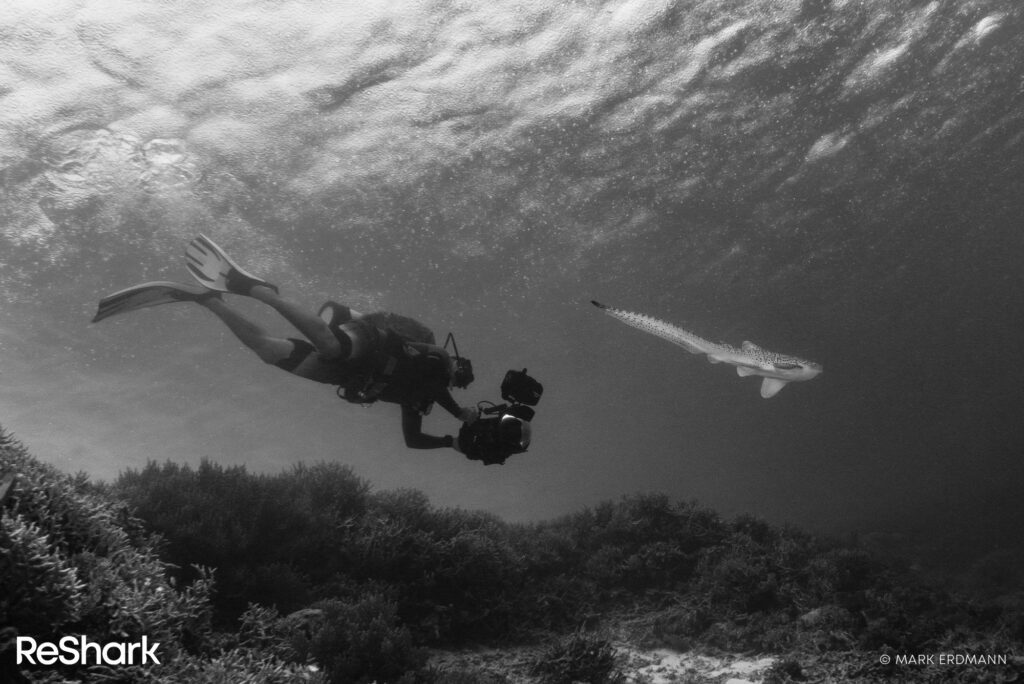
Luca Vaime of Indo Pacific Films captures Seren’s descent into the blue hole. Photo by Mark Erdmann/CI.
And with that, our six intrepid pups have begun their new life in the wilds of Raja Ampat! We’ll continue to release up to 15 more pups over the coming two months, and we’re delighted to announce that we have our biggest egg shipment yet (26 eggs from Shark Reef Aquarium at Mandalay Bay in Las Vegas and Georgia Aquarium in Atlanta) arriving later this week! While we will be regularly downloading our acoustic receivers from Misool and Dampier Strait to track the movements of the pups, we also strongly encourage all divers visiting Raja Ampat to keep their eyes out over the coming months for young leopard shark pups and to PLEASE report any such sightings to Nesha (nesha@thriveconservation.org) – preferably with accompanying photos or videos, but even simple observations are highly valuable.
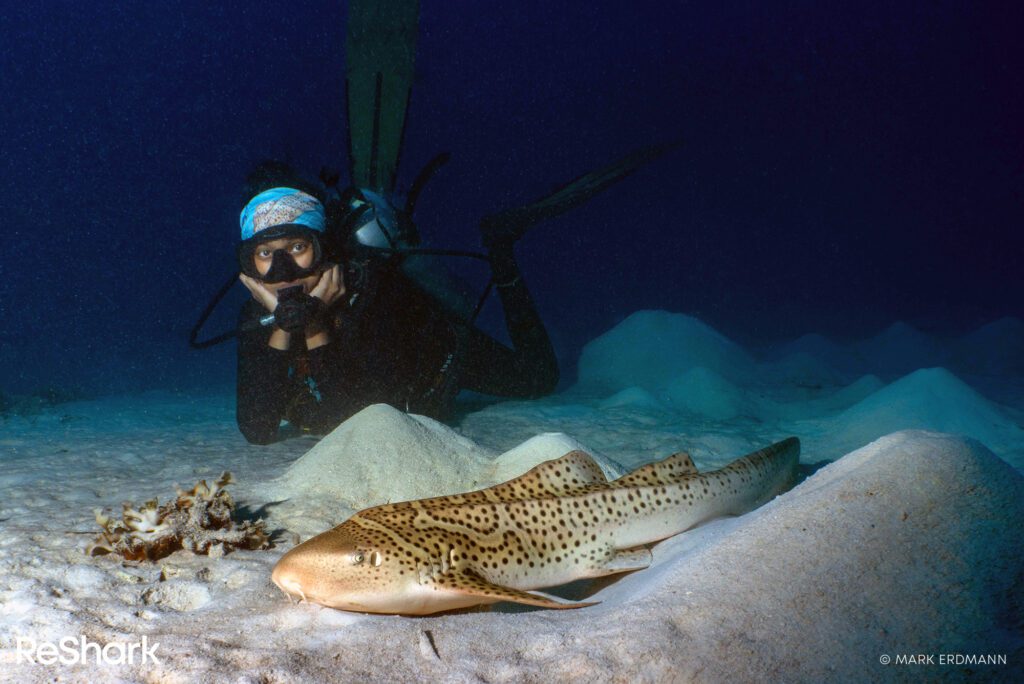
StAR Indonesian Program Manager Nesha Ichida enjoys a final few moments with Seren before he left the Sorido lagoon. Photo by Mark Erdmann/CI.
Good luck to Taran, Charlotte, Dawn, Buddy, Camille and Seren!!
Note: The StAR project would not be possible without the leadership and support of our Indonesian government partners, who include the Ministry of Marine Affairs and Fisheries (KKP), the Indonesian Research and Innovation Agency (BRIN), the West Papua and Southwest Papua Provincial Governments, the West Papua Province Research and Innovation Agency (BRIDA Provinsi Papua Barat), and the Raja Ampat MPA Management Authority (BLUD KKPD Kepulauan Raja Ampat). We’d also like to sincerely thank the generous sponsorship of the following individuals and institutions for their support of the six leopard shark pups released in Raja Ampat: MAC3 Impact Philanthropies, Samantha and Seren Bass, Anheuser-Busch, Fondation Segré, Ocean Park Conservation Foundation Hong Kong, Ocean Blue Tree, Henry Foundation and Rumah Foundation.
*Mark Erdmann (Conservation International)
**Nesha Ichida (Thrive Conservation)










